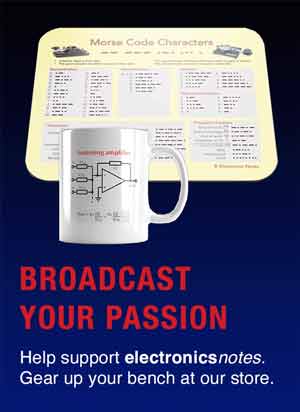How to Become an Electronics Engineer
Engineering can be a very rewarding career, and looking at the best ways to become an engineer can provide the best foundations and opportunities for a successful engineering career.
Electronic Engineering Outline Includes:
What is Electronic Engineering
Electronic Engineers
How to become an engineer
Engineering can be a very rewarding career. Having the challenge of solving interesting problems and developing and designing electronics, software, and the like can provide a particularly interesting and rewarding career.
Knowing how to plan your career, and what first steps to make including the training is very important because it can ensure that you have the right qualifications and have taken the correct approach.
Fortunately there are many options these days from online college courses, to help from professional institutions and companies offering graduate training schemes for those entering the profession.
What type of engineering
there are many different areas where engineering skills can be applied. Electronics, software and IT are just three related to electronics, but there are many more: mechanical engineering, chemical engineering, structural engineering, environmental, electrical, audio . . . .
It is worth taking a little time to explore what types of engineering there are and which ones are of the most interest. Everybody is different, so take a while to see which areas are most stimulating and fascinating for you.
If possible try to get a visit to a company, or gain an insight into what actually happens in a typical company.
That said, even within, for example, electronics engineering, different companies work in different ways, and there are many different jobs that electronics engineers do.
This means that even when you have selected one type of engineering, you can still tailor your career, very much to what you want.
Training
One of the key foundations for any career is to gain the right training. Typically it is best to think about a Bachelors degree or better still a Masters. However there are still apprenticeships available in some areas or other training which might suit some people better.
For those able to apply for University degrees, there is a variety of different courses available, although this will depend upon where in the globe you are or want to study.Fortunately there are many online college application schemes, so it is possible to access the application process remotely.
There are also many universities and colleges starting to offer online college courses, so this can be a real advantage in many cases.
One of the points to consider when selecting a college, whether a residential or one here you need to physically be there, or a remote or online college course is whether it is accredited.
When a course is accredited not only does it provide more kudos, but it may also be able to provide access, later to becoming a chartered engineer, or professional engineer. More of this later.
Another consideration is the actual course and its content. Whilst it is important to study a good subject, employers tend to look for much more than just having studied the right course. Obviously it helps a lot of the course is in the right subject area, for electronics engineering, for example, history is not an ideal choice, but often mathematics, physics and the like are often quite applicable for many engineering jobs, although electronics engineering can be the most applicable.
Applying to a good college of university helps. Whether a residential or online course, having a degree from a respected university or college is always an asset. This should be considered when making an assessment of the best courses and academic institutions.
Seeking your first job
Having completed your qualification whether at a residential or using an online college, the next step is to try to gain a first job.
This may not always be easy, but many larger companies seek to take on new graduates, sometimes giving graduate training to help with the transition from academic life into industry.
Sometimes these graduate training programmes will involve seeing various electronic, software or development engineering departments and how they work. These programmes are very beneficial because they give a good introduction into commercial life, showing how engineering actually takes place.
It is not always possible to job a company offering graduate training, and it will be necessary to learn many more practical design skills on the job.
Whatever the job gained, it is best to seek to learn more and understand more about the various processes involved whether they are electronics hardware design, software or whatever.
Professional Engineer / Chartered Engineer
In some countries, engineers who offer their services to the public need a licence to do this. Other countries, like the UK have a system where the professional institutions (Institution of Engineering and Technology, IET, British Computer Society, etc.) provide a status of Chartered Engineers, Incorporated Engineer,
Both Professional Engineer and Chartered Engineer, etc are gained by showing a level of competence in the industry. Whether required legally or not, they give prospective employers, and work colleagues a level of confidence in the ability of the holder.
Continued professional development, CPD
Once established in a good job, it is still very important to keep up to date with technology, techniques and latest legislation, etc.
Continuing Professional Development, CPD training can take many forms, it may be in the format of online training, studying books, preparing for and giving presentations, learning new skills on the job, and many other areas where new skills and updates are taken on board.
The actual format for CPD will depend upon what the employer and professional institution requires, and they can accept many forms of training, not just formal courses and online training.
Progressing within the job
All people want to progress within their career and feel that they are improving and achieving new goals.
Having career aims and goals is very good. It gives you something to aim for and this is likely to improve your performance.
One of the key criteria for a job is for it to be enjoyable. make sure the job is enjoyable and have some fun.
 Written by Ian Poole .
Written by Ian Poole .
Experienced electronics engineer and author.
More about becoming an engineer:
Career planning
Continuing professional development, CPD
What is electronic engineering?
Job application
PI Insurance
How to work from home
How to set up your own business
Return to Becoming an Engineer . . .



